Map reading skills Normal Worksheets for Ages 7-8
10 filtered results
-
From - To
Enhance your child's map reading skills with our engaging worksheets designed specifically for ages 7-8! These user-friendly resources foster essential skills such as interpreting symbols, understanding scales, and navigating directions. By completing these normal worksheets, students will gain confidence in reading maps and applying their knowledge in real-world situations. Our colorful designs and age-appropriate challenges make learning interactive and fun. Encourage your child's curiosity about geography and improve their critical thinking abilities. Suitable for use at home or in the classroom, these map-reading worksheets offer an effective way to support your child's learning journey. Download them today and explore the world together!
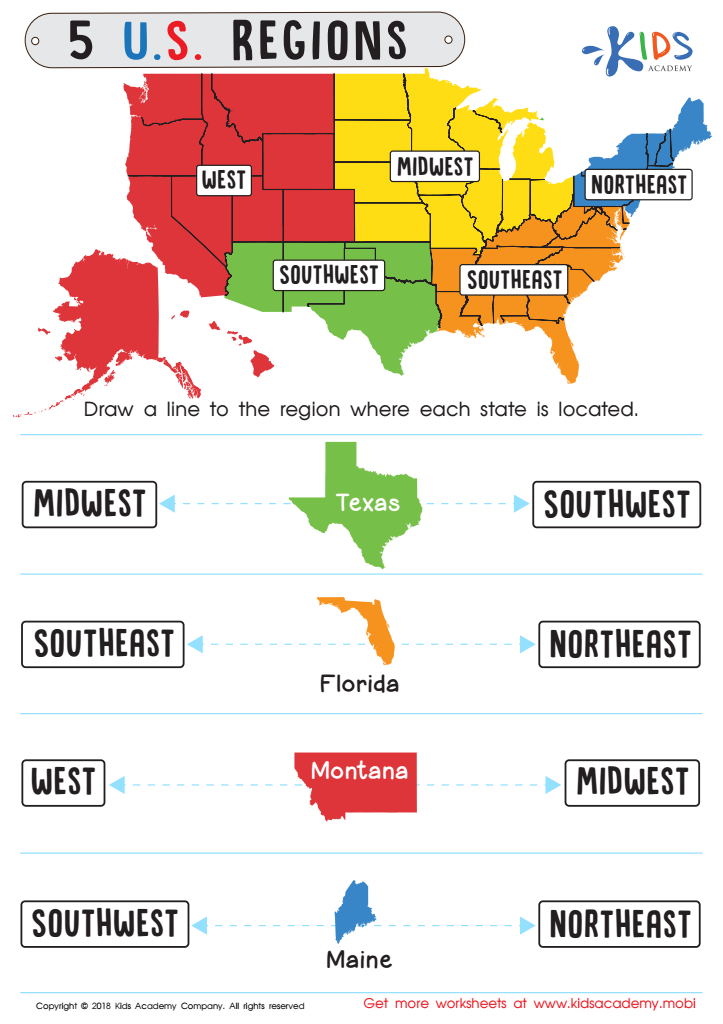

5 U.S. Regions Worksheet
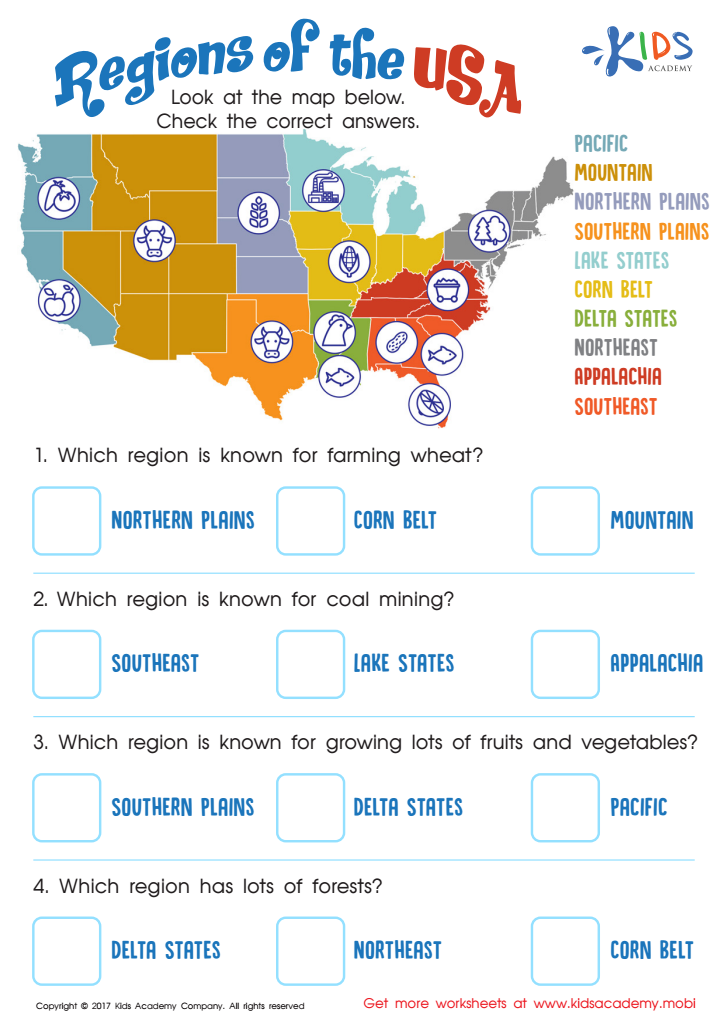

Regions of the USA Worksheet
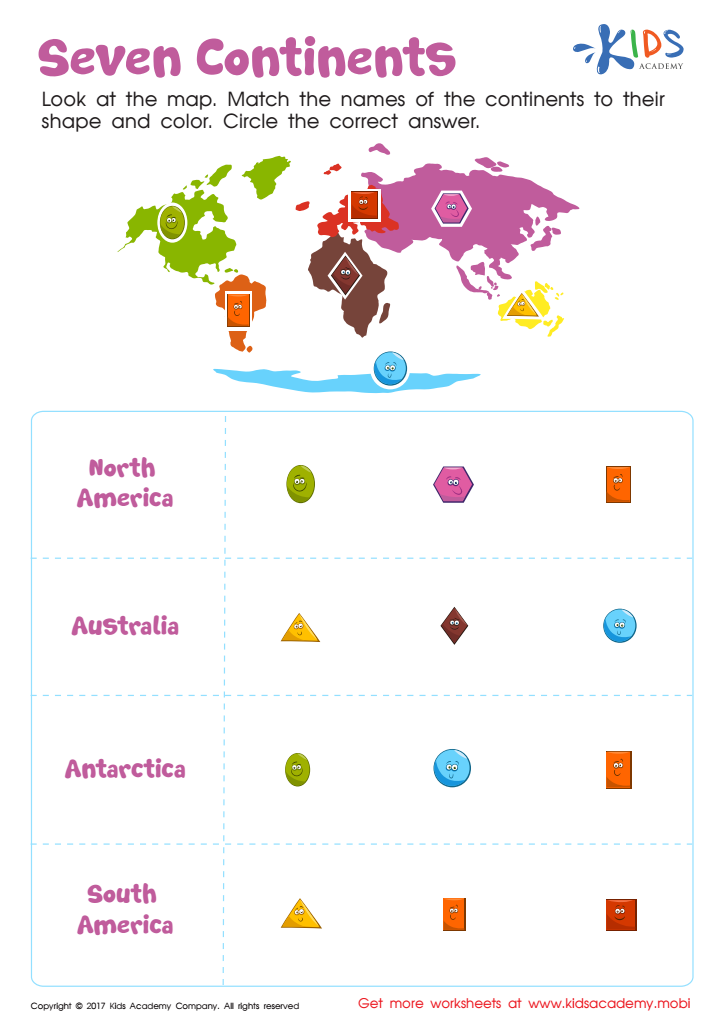

Seven Continents Worksheet
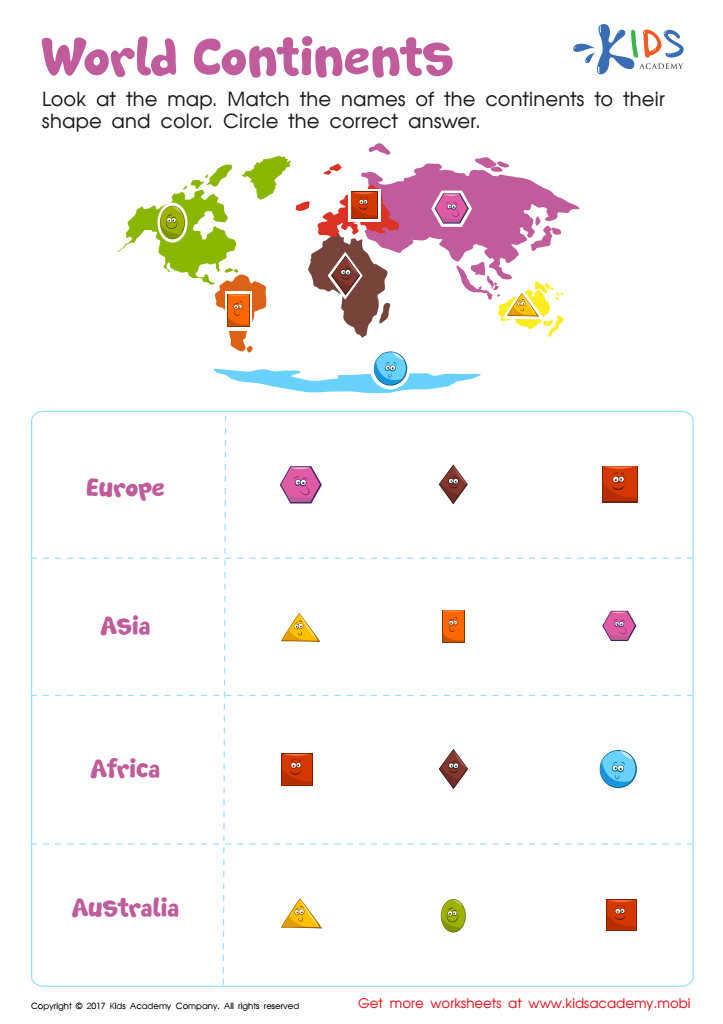

World Continents Worksheet
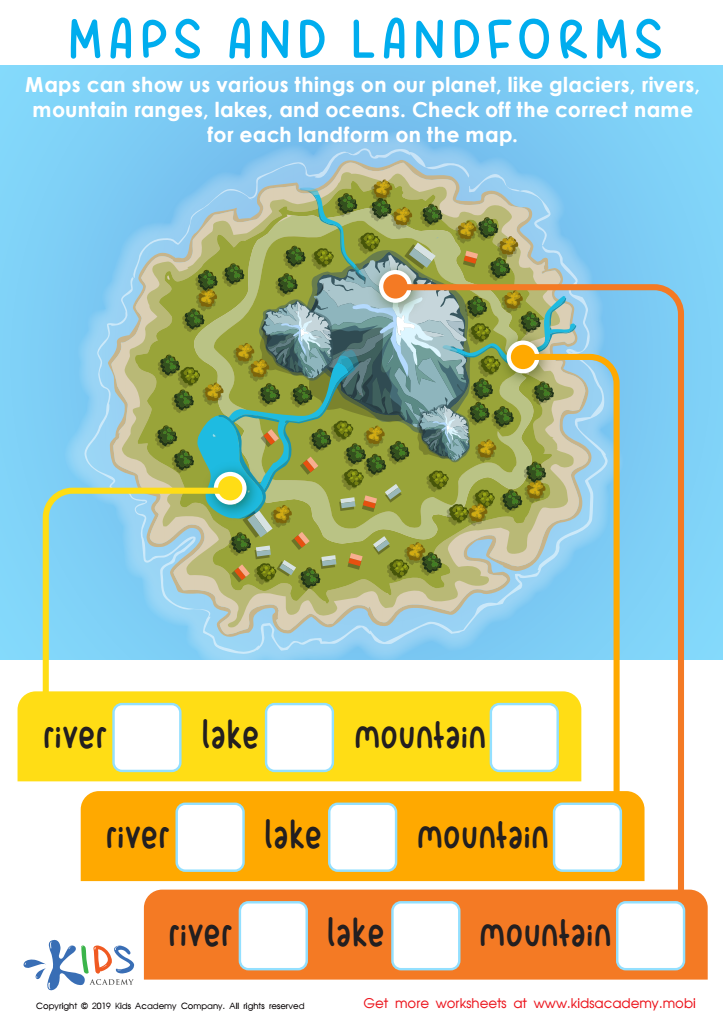

Maps and Landforms Worksheet
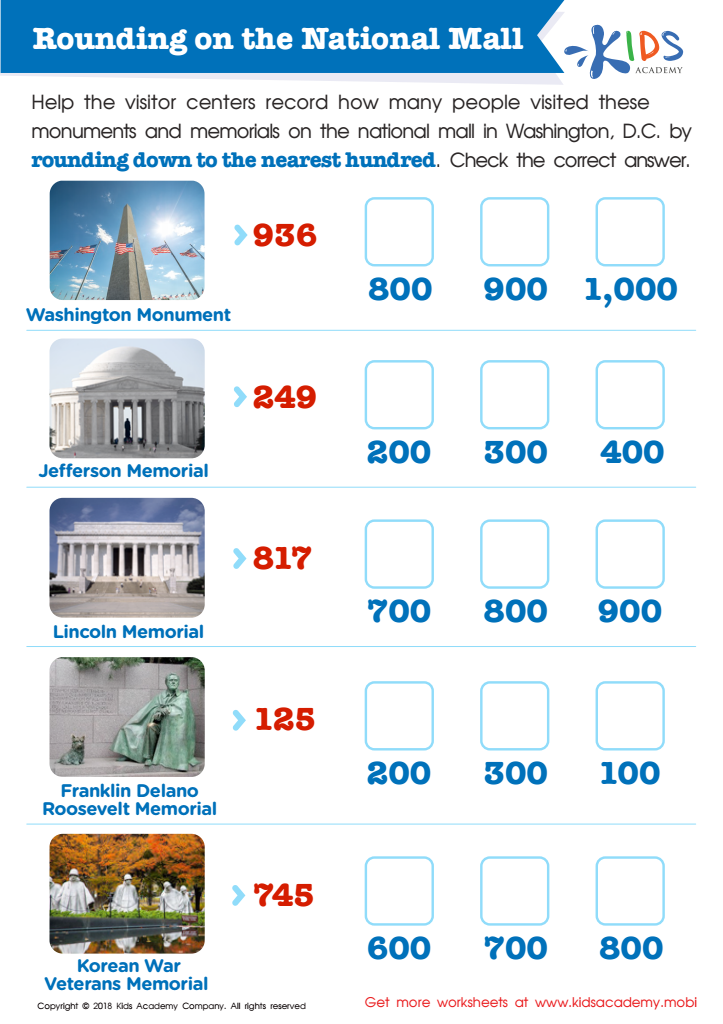

Rounding on the National Mall Worksheet
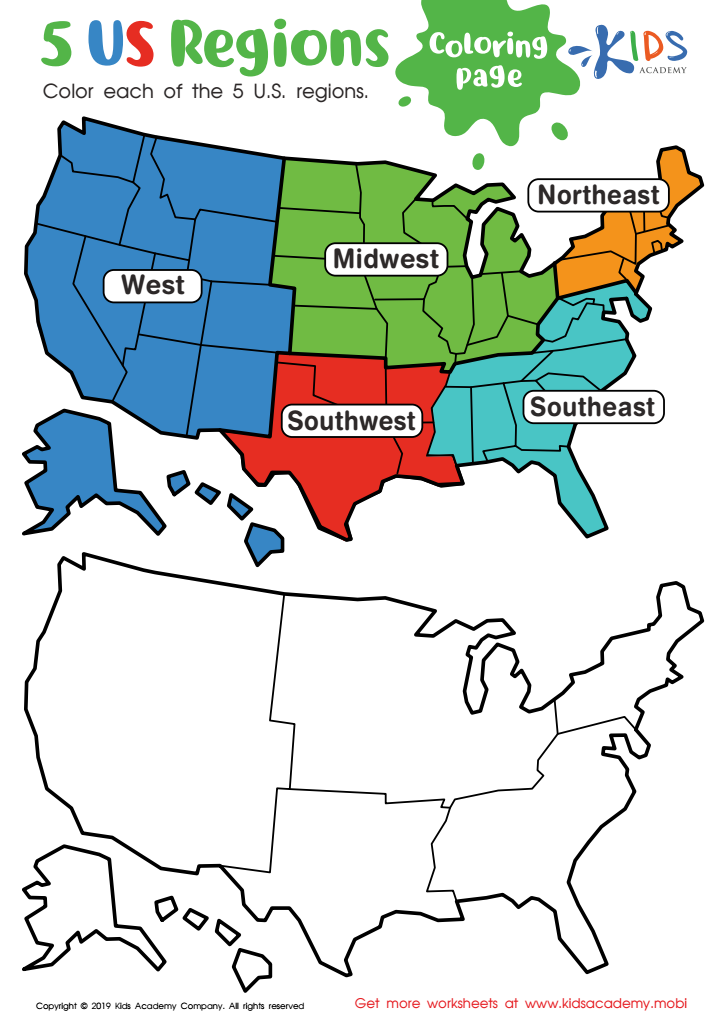

US Regions Coloring Page Worksheet
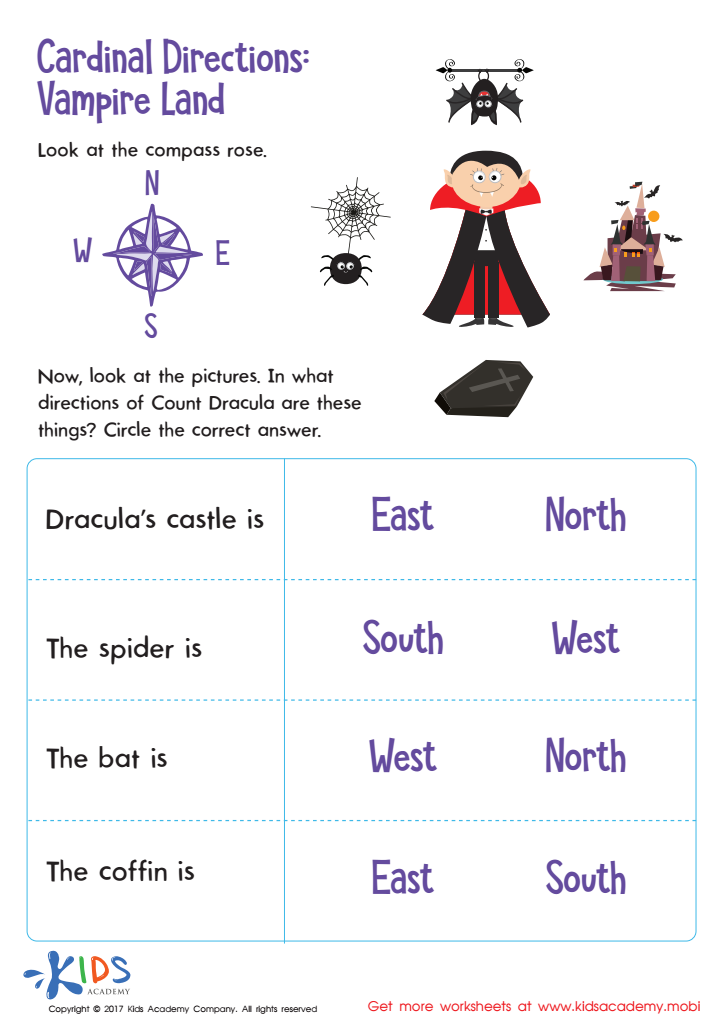

Cardinal Directions Printable
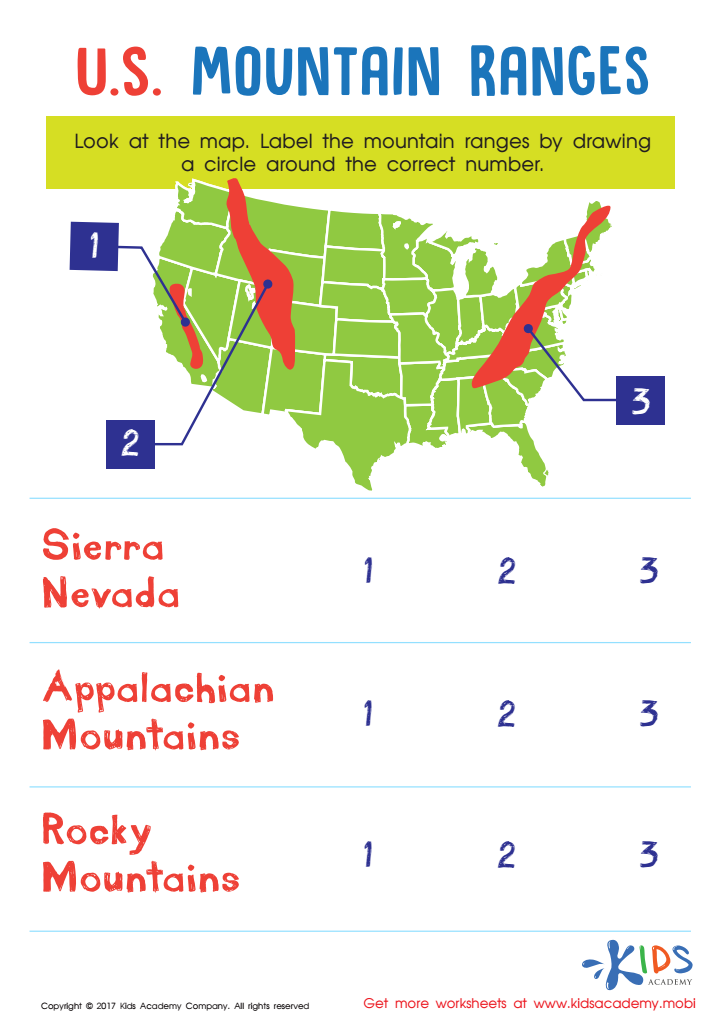

US Mountain Ranges Worksheet
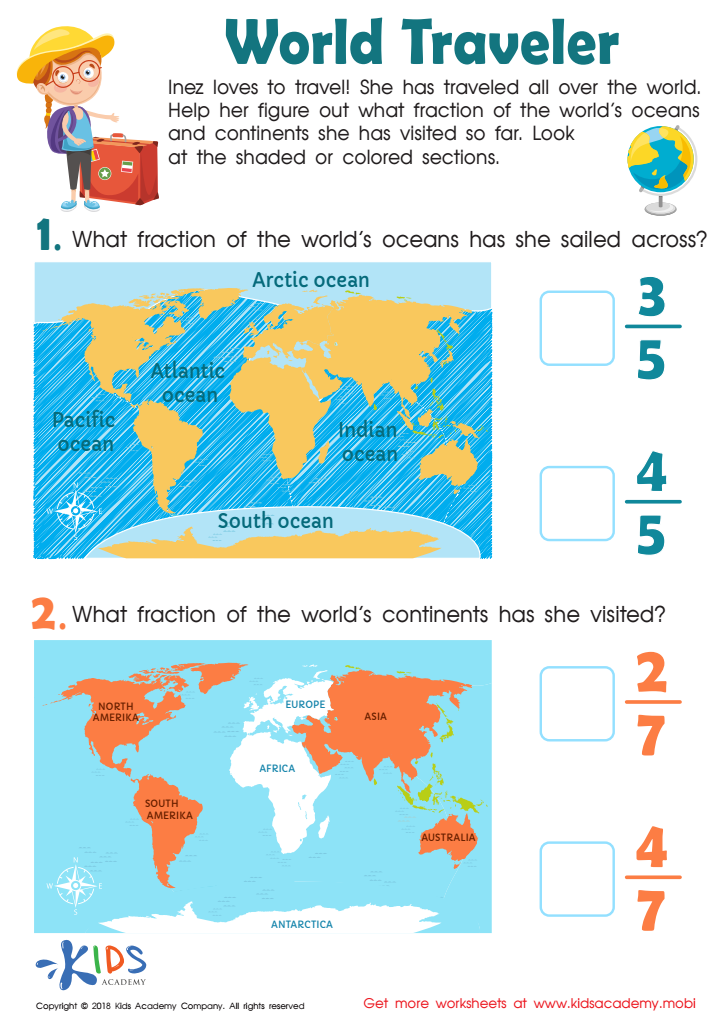

World Traveler Worksheet
Map reading skills are crucial for children aged 7-8 as they promote critical thinking, spatial awareness, and independence. During these formative years, children are developing foundational cognitive abilities, and map reading can enhance their problem-solving skills. Understanding maps helps children grasp concepts like scale, direction, and symbols, which are essential for navigation and geography.
Moreover, map reading is directly linked to real-world applications, such as understanding their surroundings, solving location-based problems, and interpreting data. This skill fosters curiosity about the environment, encouraging exploration and outdoor activities. Engaging with maps can also lead to valuable discussions about different cultures, communities, and terrains.
Additionally, map reading cultivates important language skills as children learn to decipher written instructions and context clues. These skills transfer to literacy and comprehension across subjects. When parents and teachers emphasize map reading, they invest in a child's ability to connect abstract ideas to practical experiences. Overall, map reading not only supports academic growth but also equips children with life skills that encourage autonomy, boosting confidence as they navigate their world. Active participation in developing these skills shows children their choices matter, shaping their future exploration and understanding of the world around them.

 Assign to My Students
Assign to My Students




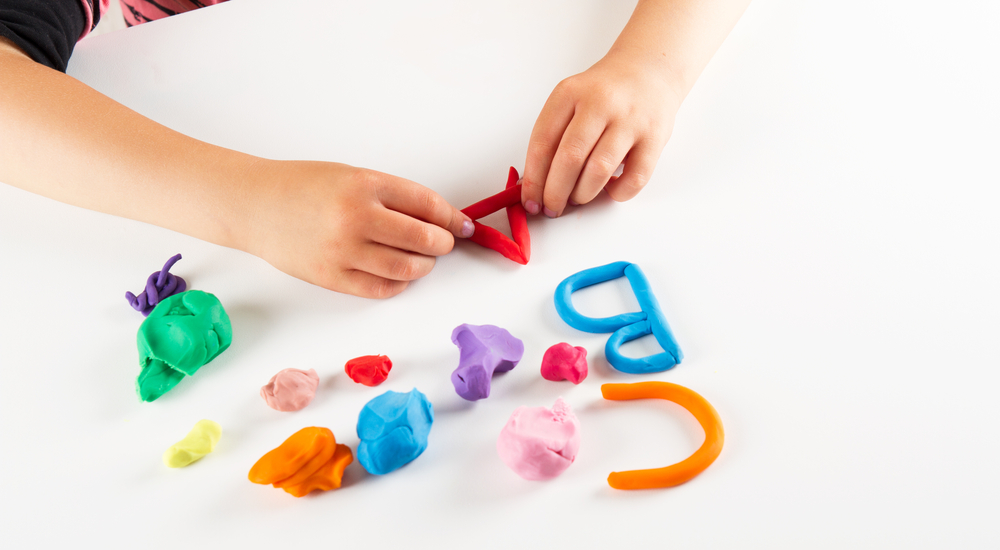
.jpg)










